

Uh oh...
It appears that you're using a severely outdated version of Safari on Windows. Many features won't work correctly, and functionality can't be guaranteed. Please try viewing this website in Edge, Mozilla, Chrome, or another modern browser. Sorry for any inconvenience this may have caused!
Read More about this safari issue.

The next time you call a plumber to repair a leak, make an appointment because your vehicle’s engine is making an awful sound or lie in a bed as a licensed practical nurse checks your vital signs: be thankful for technical education.
Arkansas has numerous programs and schools statewide to accommodate people wanting to seek experience and expertise in everything from welding, electrical work and automotive technology to cosmetology, nursing and massage. Whether the schools are housed in community colleges, components of university systems, or function as standalone schools; these Arkansas institutions prepare workers in skilled trades for careers requiring the kind of knowledge and expertise handling jobs most people will need to outsource.
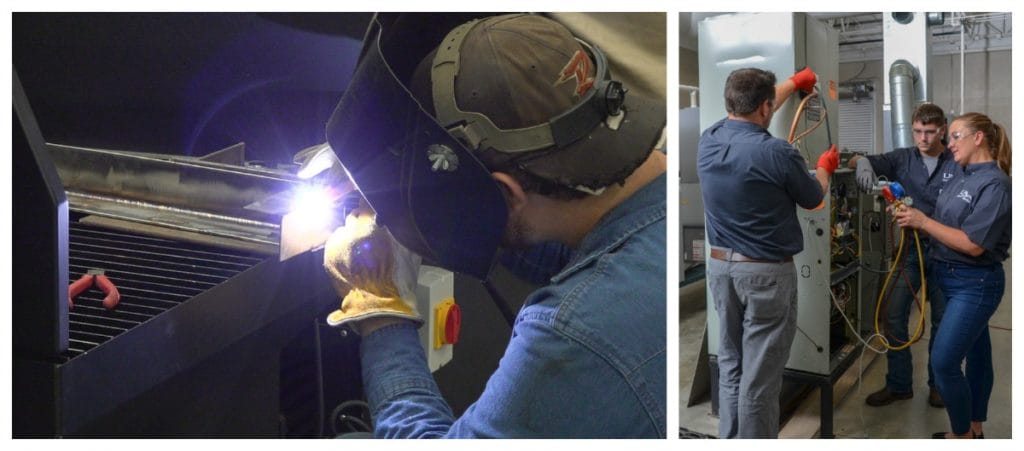
Arkansas Construction Education Foundation
Locations throughout the state
The Arkansas Construction and Education Foundation is based in Little Rock, but they spread their educational influence around the state with instructors who deliver training to 700 students. They partner with schools, academies, and community colleges in Jonesboro, Jackson, Springdale, Berryville, Mayflower, Forrest City and Siloam Springs.
Kathy Fulks is the executive director of the foundation. She wants others to realize the immense opportunities available for people graduating out of their programs.
“A skilled trade can be used all your life, and you are not limited by what you can do with it. Many of our apprentices have gone on to start their own businesses. Graduates can use their training education to become project managers or superintendents. With this education, a couple of business classes and help from the small business administration, there’s a real option to not only learn a trade, but to be your own boss.”
The foundation places a strong emphasis on on-the-job training: 8,000 hours of emphasis. Their apprenticeship programs include a focus on the construction trade, but includes HVAC, electrical, plumbing and training to be an industrial electrician.
Northwest Technical Institute
Springdale
Northwest Technical Institute sits across from the Springdale airport on Old Missouri road, a busy north-south corridor that connects the east side of the Northwest Arkansas region. The school comes with enthusiastic recommendations by many students in the area.
Springdale resident Lorén Eoff works at a hospital as a licensed practical nurse, an educational path made possible by choosing to attend Northwest Technical Institute.
“Without my vocational education I wouldn’t be where I’m at, making the pay I currently make or with my family in the way I want to be. My classroom sizes were smaller [than most colleges], making it easier to learn.”
Isaac Keeney is studying automotive technology at the institute. His coursework provides the foundation for general automotive mechanics and will prepare him for required standardized testing to become a certified technician in the field. He hopes to use this education to work for a local dealership or private shop.
His favorite thing about the school is the way they structure their education process.
“In the first part of the day you sit under a lecture on whatever chapters you cover that week in your textbook. Once you’ve gone over that material, you go straight to the shop and actually do what you just learned. Being the hands-on guy that I am, I really appreciate that.”
Gretchen Sawyer, program manager and career coach with the school, says that the frequent practical component is part of what distinguishes the institute.
“Northwest Technical Institute stands out for hands-on, high-demand training. Students can also complete requirements in less time and with a smaller class size than at a traditional college or university.”
The institute cooperates with school districts in the region to allow students the chance to take vocational courses while they are still in high school, giving them a solid head start should they wish to continue after graduation.

Metropolitan Career Technical Center
Little Rock School District
“Real Work. Real World. Real Life Success.”
Part of the Little Rock School District, Metropolitan Career Technical Center has evolved since its beginnings in 1964 as a comprehensive vocational technical school. Later changed to the state’s first area vocational center, it continued to undergo transitions that represented the real-world education it offers students in Little Rock and surrounding areas.
This program’s fields of study include: audio video technology & film, culinary arts, digital media, construction technology and emergency medical services. Their site lists nearly 40 businesses and organization partners they work with to serve students in public, charter, private and home school.
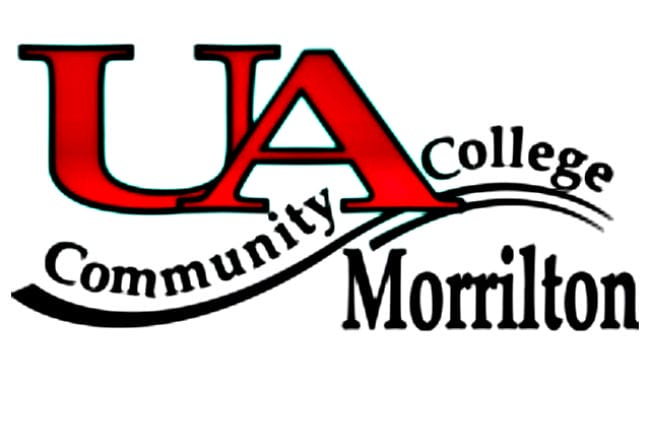
University of Arkansas Community College Morrilton
Morrilton
The University of Arkansas Community College started as Petit Jean Vocational Technical school when its doors opened in 1963. Along the way, it became Petit Jean College and in 2001, merged with the University of Arkansas system to become a two-year community college.
The director of marketing and public relations, Mary Clark, says that a core component of the college’s education is technical education. Programs include air conditioning, emergency medical technician, practical nursing, welding, commercial driver training, and industrial mechanics and maintenance.
“Demand for these programs is high because they offer excellent opportunities for graduates and they address the workforce shortage of skilled technicians. The programs have strong support from businesses and industry, many of which offer internship opportunities, technical expertise, equipment donations, and monetary support for scholarships.”
Clark points out that many careers in demand require only a two-year degree, putting students into the workforce ahead of those working toward bachelor’s degrees, and with competitive salaries. Graduates also appreciate the a more personal learning environment.
“Students love the small class sizes, the affordability and the hands-on training offered in our technical programs.”
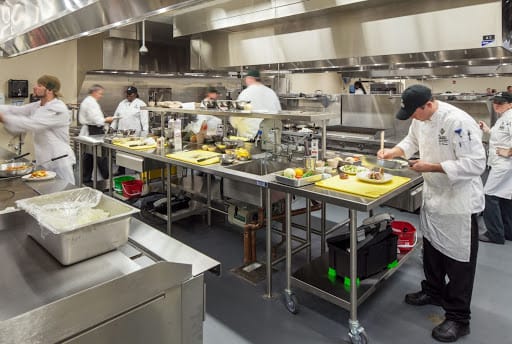
University of Arkansas Pulaski Technical College in North Little Rock lists as one of its values, “life-long learning that enhances individual and community development.” The school includes programs in dental assisting, emergency medical services, welding technology, applied electronics technology, drafting and design technology, power sports/equipment technology, tractor and trailer logistics, machine tool technology, construction management, culinary arts, and hospitality management.
University of Arkansas Global Campus Facilities in Rogers and Fayetteville provide education and training to people in Northwest Arkansas and surrounding communities. Courses span a wide variety of options: everything from web development and digital marketing to agricultural education and animal science. Program coordinators “collaborate with the University of Arkansas’s academic colleges and departments and industry experts to deliver quality, cutting-edge non-credit courses and programs to those looking to enhance and grow their professional careers or personal lives.” Courses part of the professional and workforce development programs are taught by instructors and experts in the industry.
University of Arkansas Phillips Community College has an integral history starting in the 1960s after the Arkansas State Legislature and people of Phillips County provided feasibility and finances for a community college to form. With campuses in DeWitt, Helena-West Helena and Stuttgart, They’ve grown from fewer than 250 students to nearly 2,000 seeking continuing occupational and technical training and academic degrees. Their education and certificates include equipment and machine technology, HVAC, cosmetology, graphic communications, welding, commercial driving/trucking and construction technology.
Arkansas State University-Searcy has an emphasis in technical and occupational programs as well as workforce and economic development. The majority of their programs lead to a Certificate of Proficiency or a Technical Certificate within the area of study. Classes are offered by the Searcy Adult Education Center with locations in Searcy, Heber Springs and Beebe.
Arkansas State University-Mountain Home offers certificates and associate degrees in workforce education and adult basic education. The school offers lifelong learning for students to “explore ethical values, develop technological and critical thinking skills, and communicate logically and effectively in order to enhance their quality of life.”
Technical certificates offered include electronics technology, health professions, law enforcement administration, paramedic, welding, and practical nursing.
Arkansas State University-Beebe claims their place in history as the oldest two-year college in the state and one with high retention and graduation rates. The school offers “certificates of proficiency and one-year technical certificates that are designed to prepare students to meet the needs of today’s rapidly evolving industries.”
Programs include education in computer-aided drafting and design, industrial technology, networking technology, and medical laboratory technology. Every year, the Beebe location serves over 3,500 students for continuing education or workforce development.
The Arkansas State University system includes additional campuses: Newport, Heber Springs, Mid-South, and Three Rivers.
North Arkansas College in Harrison offers technical certificates and/or certificates of proficiency in a variety of trades including automotive service technology, digital media, collision repair, office management, practical nursing, emergency medical technician, surgical technology, and truck driving.
South Arkansas Community College in El Dorado provides career and technical education in automotive diagnostics and maintenance, numerous welding categories, process technology and industrial technology. According to their site, the college has over 20 transfer agreements with four-year universities and offers tuition and fees at a fraction of the price. The college formed in 1992 and is governed by a Board of Trustees initially appointed by then-Gov. Bill Clinton.
National Park College in Hot Springs offers two-year degrees and certificates online and on campus through their partnership with Southern Arkansas University. Some of their programs include respiratory care, radiology, nursing, emergency medical services, health information technology, welding, and marine repair.
Join the Conversation
Leave a Comment
One response to “Hands On: Skilled Trades Education in Arkansas”
 Leave a Reply
Leave a Reply
We do the work.
You check your email.
Sign up for our weekly e-news.
Get stories sent straight to your inbox!









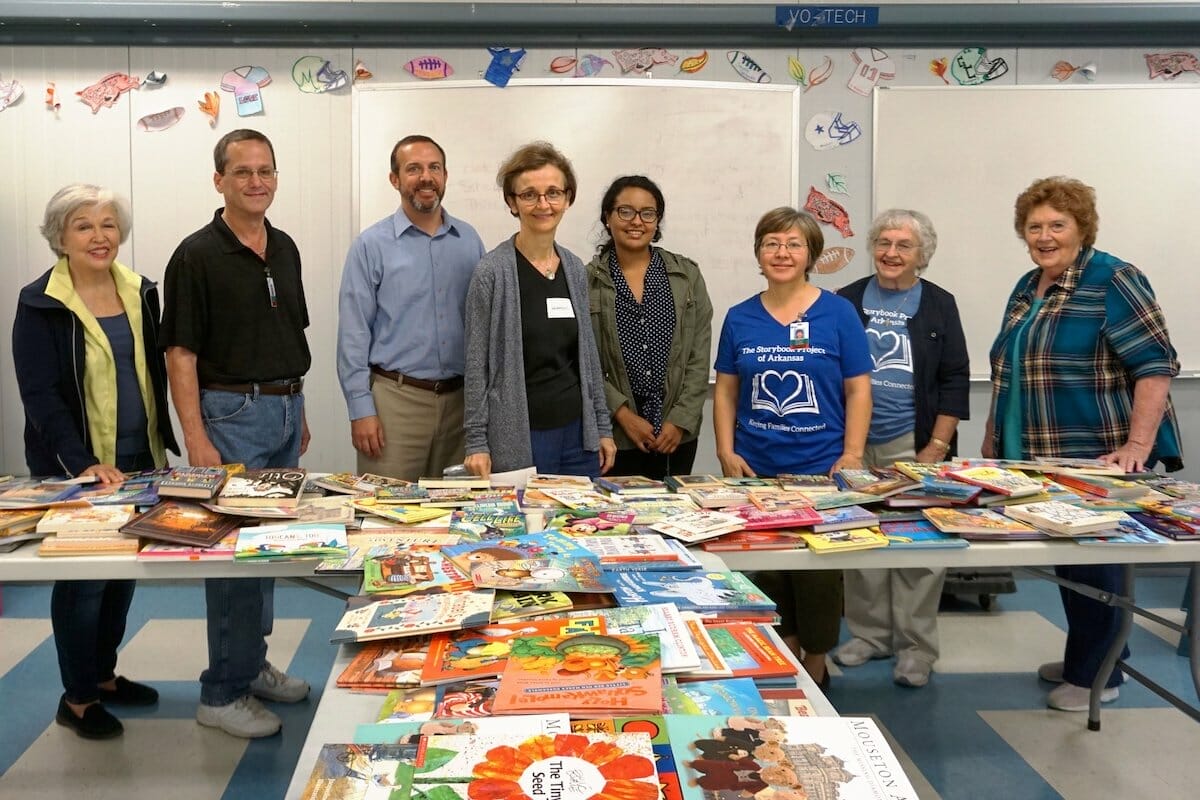


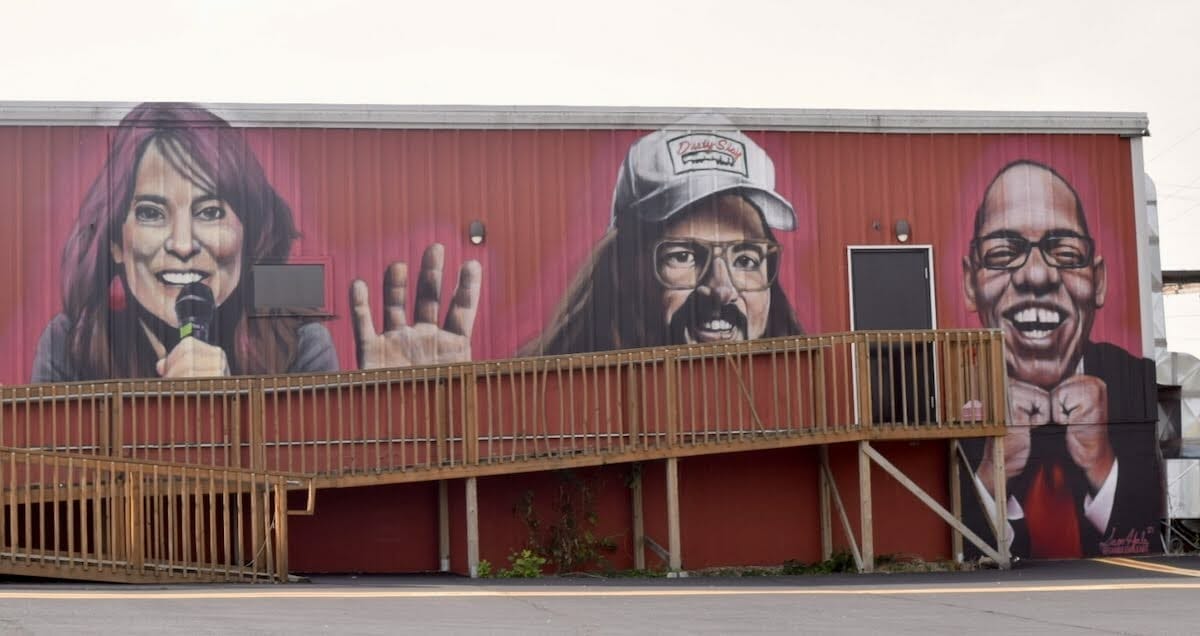
 Leave a Reply
Leave a Reply
[…] for recipe development, so I enrolled for a Technical Certificate in Culinary Arts through Pulaski Tech in Little Rock. It’s a 30-hour program, so 6-7 classes, and I knew it would give me the […]